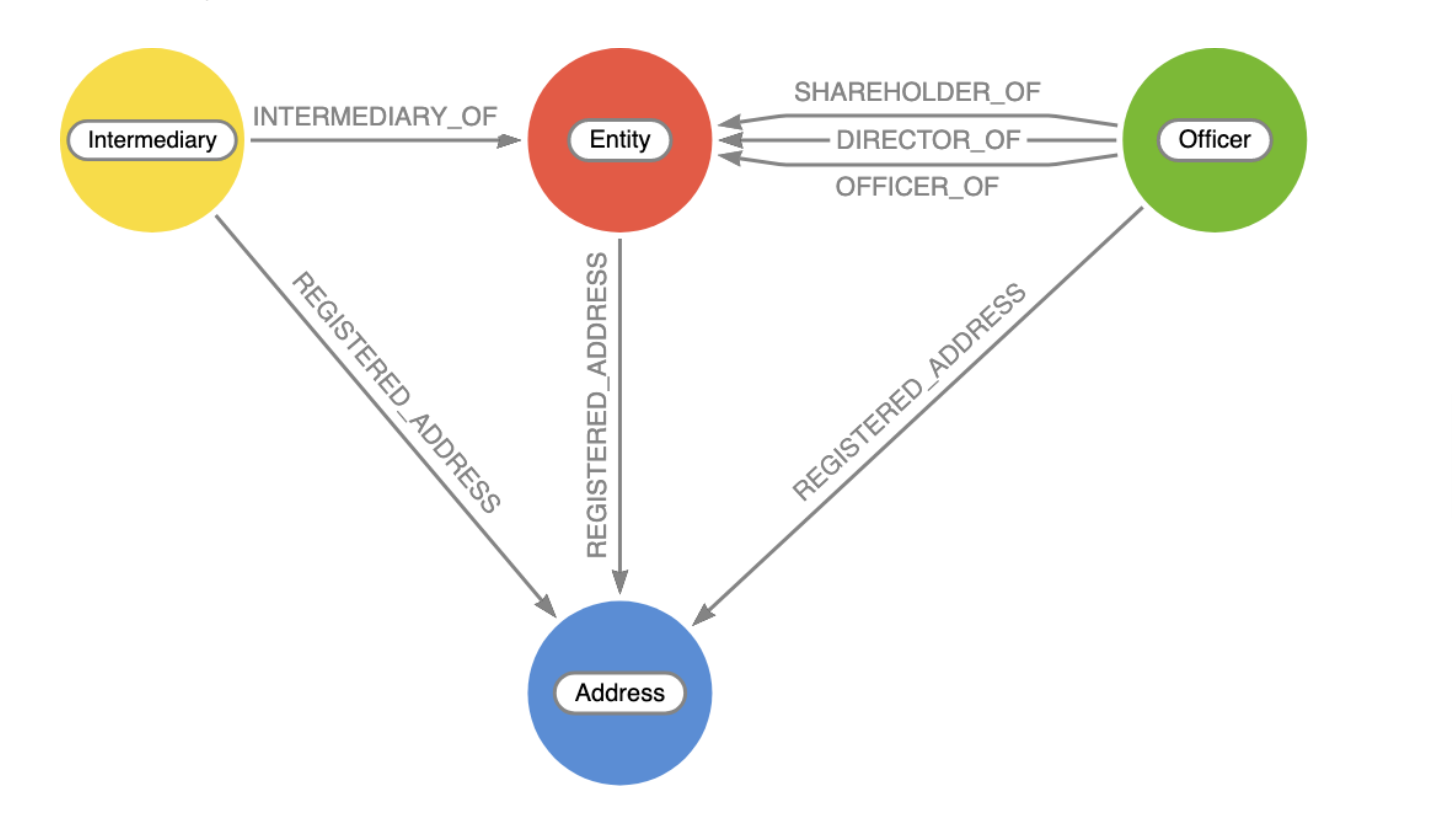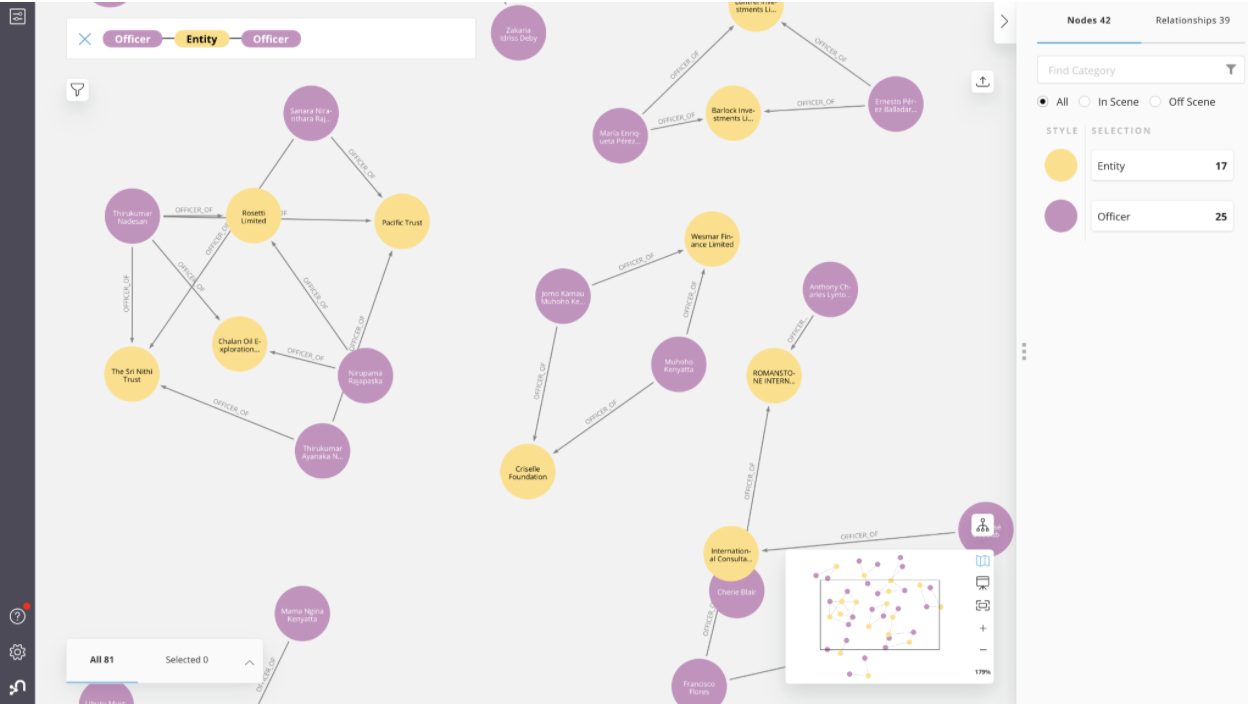The ICIJ Offshore Leaks Database is licensed under the Open Database License and its contents under Creative Commons Attribution-ShareAlike license. Always cite the International Consortium of Investigative Journalists when using this data.
This database is powered by Neo4j, a graph database that structures data in nodes (the icons you see in the visualization) and relationships (the links between nodes). To make this data easily accessible to everyone, regardless of the technical resources at their disposal, we have converted our original database into several CSV files, one per type of node and one for all the relationships in the whole Offshore Leaks Database. You may download the archive in zip format.
Offshore Leaks zip file includes:
- Offshore Leaks (2013)
- Panama Papers (2016)
- Bahamas Leaks (2016)
- Paradise Papers (2017)
- Pandora Papers (2021)
The data is also made available as Neo4j exported databases, you can download a version 4 or a version 5 as Neo4j dumped files. This GitHub repository show you how import the dump file into Neo4j Desktop or the Neo4j AuraDB cloud service, or manually loaded into any Neo4j installation (see the Readme).
The repository includes an interactive guide (:play icij-offshoreleaks) to explore the data model and dataset, which will be continuously updated. There are also code examples that show how to build applications and dashboards using the data, including a GraphQL API.

After loading the data, you launch the Neo4j Browser with a single click and explore the whole ICIJ Offshore Leaks Database interactively via the step-by-step guide or through visual tools like Bloom and others.

Watch this video to learn more about the graph database software:
If you have questions about the data, you can contact ICIJ. If you have questions about the software Neo4j, you can contact the Neo4j team.